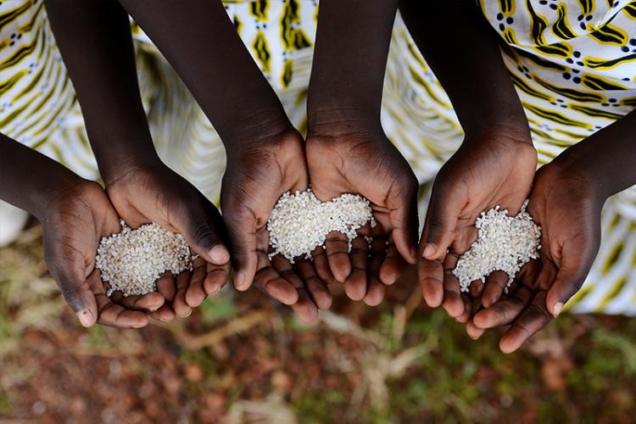The International Monetary Fund (IMF) is warning of impending food security issues for Ghana and other African countries due to the ongoing war between Russia and Ukraine.
The Fund said Russia’s invasion of Ukraine has pushed food and energy-related commodities to record levels on the global market.
The captured concern is in the IMF’s Regional Economic Outlook Report released on Thursday. The Fund was worried that development could hurt economies in the region already struggling.
IMF on food security concerns
IMF, in the report, maintained that food prices, which account for about 40 per cent of consumer spending in the region, are rising rapidly.
Around 85 per cent of the region’s wheat supplies are imported. Higher fuel and fertiliser prices also affect domestic food production.
The Fund added, “Together, these factors will disproportionately hurt the poor, especially in urban areas, and will increase food insecurity.”
On fuel prices, the IMF noted that higher oil prices will boost the import bill for the region’s oil importers by about $19 billion, worsening trade imbalances and raising transport and other consumer costs.
Oil-importing fragile states will be hit hardest, with fiscal balances expected to be disrupted.
Impact on Economies
The shock makes an already delicate fiscal balancing act more difficult: increasing development spending, mobilising more tax revenues, and containing debt pressures.
Fiscal authorities generally aren’t well-positioned for additional shocks after the pandemic. Half of the region’s low-income countries are already in or at high risk of distress.
Rising oil prices also represent a direct fiscal cost for countries through fuel subsidies, while inflation will make reducing these subsidies unpopular.
Spending pressures will only increase as growth slows, while rising interest rates in advanced economies may make financing more costly and harder to obtain for some governments.
What Ghana and other Sub Saharan governments should do
The increase in commodity prices due to the war in Ukraine, especially for food and energy, has compounded recent inflationary pressures in many countries.
Since output levels remain well below pre-pandemic trends in most countries, central banks face a difficult balancing act between curbing inflation and supporting growth.
To navigate this trade-off, central banks will need to monitor price developments carefully, stand ready to increase rates if inflation expectations drift up, guard against the financial stability risks posed by higher interest rates, and maintain a credible policy framework underpinned by strong central bank independence and clear communication.
Some have already started to increase interest rates, and more tightening may be needed in many cases.
Latest Stories
-
Stakeholders advocate waste recycling to drive economic empowerment at Recycle Up! Ghana 10th anniversary
2 seconds -
Biden commutes most federal death sentences
21 minutes -
Hollywood stars support Blake Lively over legal complaint
24 minutes -
GMeT warns commuters of intensified harmattan conditions
35 minutes -
Honda and Nissan join forces to take on China in cars
37 minutes -
CETAG threatens indefinite strike over breach of agreements
1 hour -
Fifty 50 Club lauded for impactful social interventions
1 hour -
Konongo and its environs risk water shortage as Owerri River ‘stops flowing’
1 hour -
Dr. Stacy Amewoyi launches new books and expands philanthropic efforts across Ghana and US
1 hour -
Hindsight: Legon Cities’ five years of fugazi money
2 hours -
JoyNews’ Kwasi Debrah ties knot with Dr. Neta Pasram in beautiful ceremony
2 hours -
Wimbledon winner Purcell admits anti-doping breach
2 hours -
Political party influence undermines leadership independence, says Prince Kofi Amoabeng
2 hours -
CHASS advises against reopening schools on Jan. 3 until financial arrears are cleared
2 hours -
Newmont’s Akyem Vocational Institute unveils battery-powered fufu machine at graduation ceremony
2 hours

